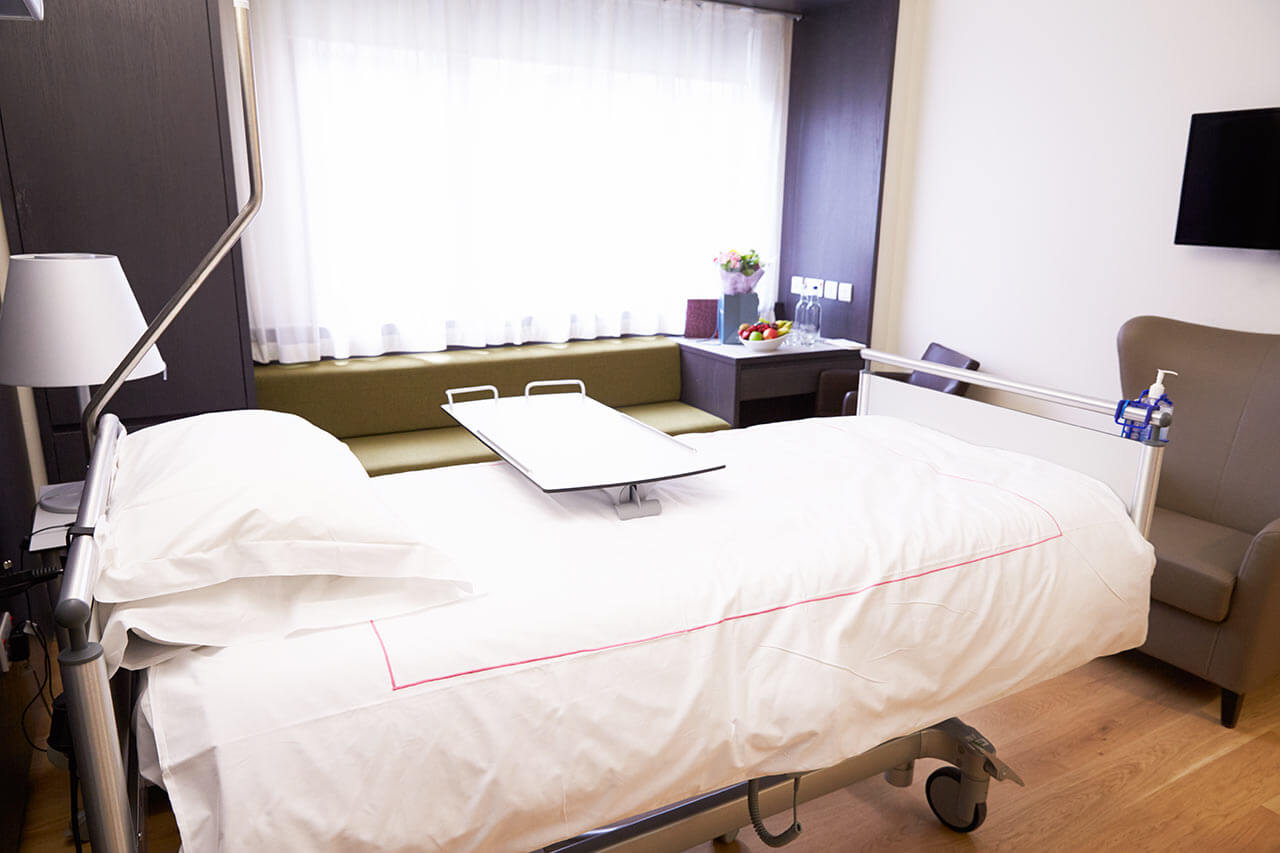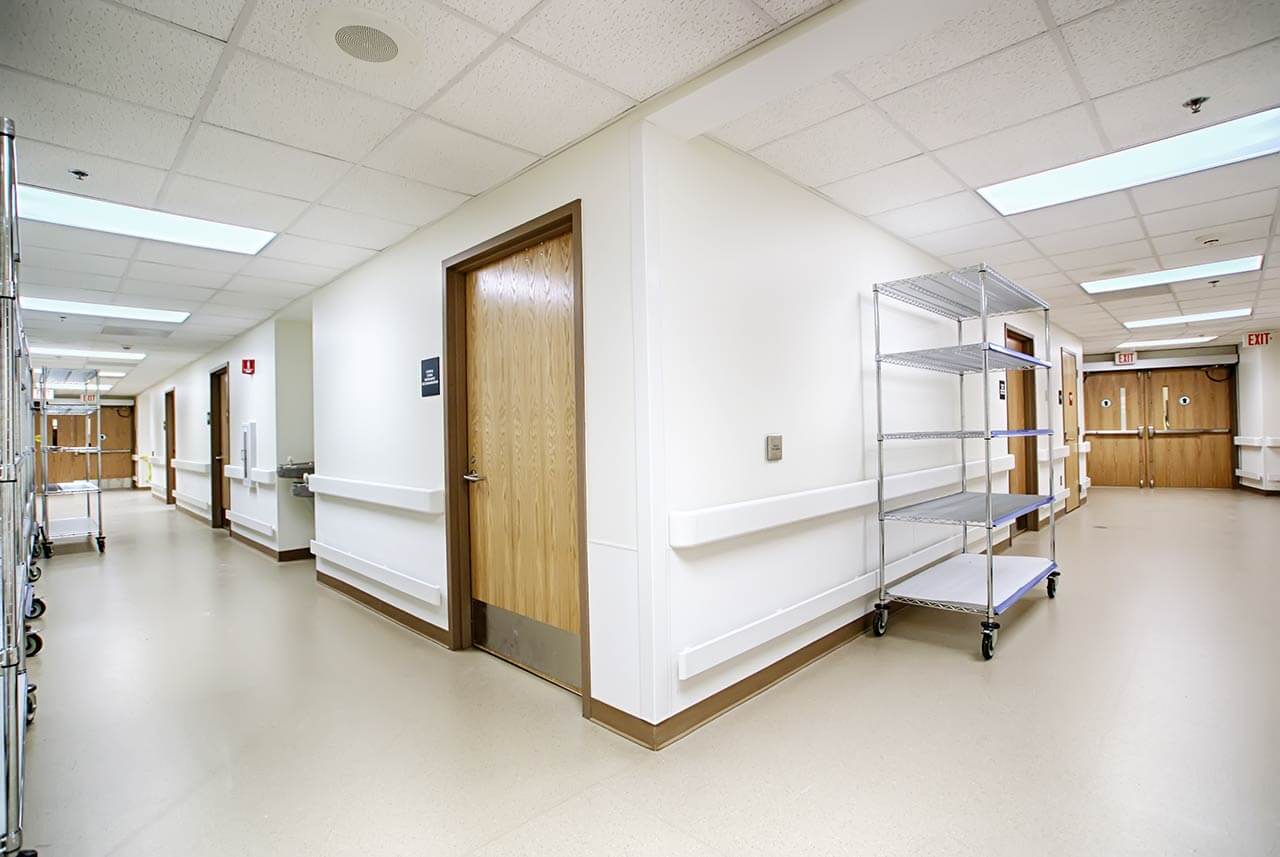
The program includes:
- Initial presentation in the clinic
- clinical history taking
- review of medical records
- physical examination
- urological examination
- laboratory tests:
- complete blood count
- general urine analysis
- biochemical analysis of blood
- inflammation indicators (CRP, ESR)
- indicators blood coagulation
- ultrasound of the urogenital system
- preoperative care
- abscess resection
- symptomatic treatment
- control examinations
- the cost of essential medicines and materials
- nursing services
- full hospital accommodation
- explanation of future recommendations
Required documents
- Medical records
- Scrotal ultrasound (if available)
Service
You may also book:
 BookingHealth Price from:
BookingHealth Price from:
About the department
The Department of da Vinci Robotic Surgery at the Hospital Friedrichshafen offers the full range of minimally invasive surgical procedures using state-of-the-art da Vinci Surgical System. The team of the department's surgeons specializes in robot-assisted surgery to treat rectal cancer, stomach cancer, prostate cancer, malignant and benign tumors of the female reproductive system and other pathologies. The Head Physician of the department is PD Dr. med. Thorsten Lehmann.
The department's medical team has been performing robot-assisted surgical interventions since 2011, and therefore has vast clinical experience. Since September 2016, the very latest da Vinci® Xi robotic system has been widely used in the department's clinical practice. The device allows the doctors to perform operations with the highest accuracy, minimizing damage to the healthy tissues surrounding the tumor. All the department's surgeons underwent specialized training in robotic surgery, so the patients are guaranteed excellent quality of surgical treatment.
The da Vinci Xi robot-assisted surgical system consists of two main units – the surgeon's console with multifunctional manipulators, with the help of which the doctor controls the "hands" of the robot, and the robot itself, which is an executive device. One of the robot's "manipulator slaves" holds a video camera, which transmits 3D HD images of the operating field, while the others hold surgical instruments. When performing the operation, the surgeon sits at a convenient control panel, which makes it possible to see the operating field in 3D mode with the possibility of 12x zoom. He uses special joysticks to control the instruments. With the help of joysticks with supersensitive mechanisms, the surgeon gives commands to the robot, setting the direction and speed of movement, while the "slave manipulators" with surgical instruments copy and reproduce the movements of the surgeon's hands and fingers. Everything proceeds in real time.
The minimally invasive intervention using the da Vinci Xi robot-assisted surgical system requires only 5-6 incisions from 5 to 12 millimeters in length, while classic interventions are performed through a large abdominal wall incision. Thus, the main advantage of robot-assisted surgery for the patient is minimal tissue trauma and blood loss, which significantly reduces the postoperative recovery period. In addition, the patient experiences much less pronounced postoperative pain. In addition, the operation does not leave any large scars on the skin. It is noteworthy that during robotic interventions on the genitourinary system in men, the surgeons manage to preserve the patient's ability to control urination and erectile function.
In addition, robotic surgery has several advantages for the surgeon. The 3D image of the surgical field in HD quality and its 12x zoom allow the specialist to clearly see all the anatomical structures of the surgical field. The robotic surgeon ensures a flawless precision of the surgical manipulations, while the doctor's hand can tremble due to anxiety or heavy workload. In addition, the robotic surgeon has a huge range of motion, so it can fully imitate the movements of the human hands and wrists.
The department specializes in robot-assisted interventions for the following pathologies:
- General surgery
- Rectal cancer
- Stomach cancer
- Urology
- Prostate cancer
- Benign prostatic hyperplasia (in the case when it is impossible to form a surgical access through the urethra)
- Bladder diverticulum
- Kidney cancer (if organ-preserving surgery is possible)
- Renal pelvis outflow stenosis, including in young children
- Bladder cancer (if necessary, bladder and prostate removal)
- Gynecology
- Uterine diseases requiring uterine resection (total and subtotal hysterectomy)
- Uterine fibroids
- Endometriosis
- Ovarian disease (for example, ovarian transposition)
- Urogynecological diseases
- Genitourinary traumatic injuries
- Uterine cancer
- Cervical cancer
- Endometrial cancer
- Ovarian tumor staging
- Radical lymphadenectomy
- Sentinel lymph node biopsy
- Other diseases and surgical interventions
Curriculum vitae
University Education, Postgraduate Training and Professional Career
- Since 2011 Head of the Department of da Vinci Robotic Surgery at the Hospital Friedrichshafen.
- Since 07.2010 Head of the Department of General, Abdominal and Vascular Surgery at the Hospital Friedrichshafen.
- 2005 - 2006 Senior Physician, Department of General and Abdominal Surgery, Helios Dr. Horst Schmidt Hospital Wiesbaden.
- 2007 - 2010 Senior Physician, Department of General, Abdominal and Transplant Surgery, University Hospital Tuebingen.
- 05.2008 Managing Senior Physician.
- 09.2008 Additional qualification in Abdominal Surgery.
- 10.2004 Habilitation in General Surgery.
- 2003 - 2005 Fellow, Department of General, Abdominal and Transplant Surgery, Charite University Hospital Berlin.
- 10.2002 Board certification in Surgery, Medical Association of Baden-Württemberg.
- 2001 - 2003 Assistant Physician, Department of General Surgery and Traumatology, University Hospital Heidelberg.
- 2000 - 2001 Assistant Physician, Department of General Surgery, Traumatology and Vascular Surgery, University Hospital Heidelberg.
- 1998 - 2000 Research Fellow, Laboratory of Hepatobiology and Toxicology, Department of Pharmacology, University of North Carolina at Chapel Hill, USA.
- 1997 -1998 Assistant Physician, Department of General Surgery, Traumatology and Vascular Surgery, University Hospital Heidelberg.
- 1996 - 1997 Assistant Physician, Department of Orthopedics, University Hospital Heidelberg.
- 1995 - 1996 Assistant Physician, Department of General Surgery, Traumatology and Vascular Surgery, University Hospital Heidelberg.
- 1993 - 1994 Internship, Department of General Surgery, Traumatology and Vascular Surgery, University Hospital Heidelberg.
- 1985 - 1992 Study of Human Medicine, Faculty of Medicine, Heidelberg University.
Photo: (c) Klinikum Friedrichshafen
About hospital
The Hospital Friedrichshafen is a progressive medical complex providing top-class treatment in various fields of modern medicine. The medical center is part of the Medicine Campus Lake Constance. It is also the Academic Hospital of the University of Tuebingen. The hospital admits not only German citizens, but also patients from other countries of the world, providing them with an impeccable quality of medical care in accordance with the highest international standards.
The hospital has 12 specialized departments, as well as multiple centers and institutes. The competent doctors with various specializations provide both diagnostics and treatment of the most diverse diseases, including cancer, pathologies of the heart, musculoskeletal system, nervous system, gynecological and urological diseases and many others. As the academic medical facility, the hospital offers its patients innovative treatment methods, which are used only in the best medical centers in Germany and around the world.
The hospital treats more than 19,000 inpatients every year. The surgeons of the hospital annually perform more than 3,500 surgical interventions of varying degrees of complexity. About 1,200 babies are born in the Department of Obstetrics every year. All these figures testify to the prestige and credibility of the medical facility, as well as the high credit of trust of patients who choose this hospital.
In addition to the high-quality treatment in accordance with the standards of university medicine, the employees of the hospital make sure that the patient feels as comfortable as possible and receives the attentive care of the nursing staff. The excellent quality of the medical services was awarded by the prestigious DIN ISO 900:2015 certificate.
Photo: (c) Klinikum Friedrichshafen, (c) depositphotos
Accommodation in hospital
Patients rooms
The patients of the Hospital Friedrichshafen live in cozy and comfortable rooms with modern design. Each patient room is equipped with an ensuite bathroom with shower and toilet. A standard patient room includes an automatically adjustable bed, a bedside table, a wardrobe, a table and chairs for receiving visitors. The patient rooms also have a TV, a telephone and free Wi-Fi.
Meals and Menus
The patient and the accompanying person are offered tasty and balanced three meals a day. There is a daily choice of three menus, including a dietary one. If for some reason you do not eat all foods, you will be offered an individual menu. Please inform the medical staff about your food preferences prior to treatment.
Further details
Standard rooms include:
Religion
The religious services are available upon request.
Accompanying person
During the inpatient program, the accompanying person can live with the patient in a patient room or a hotel of his choice. Our managers will help you choose the most suitable option.
Hotel
During an outpatient program, the patient can stay at the hotel of his choice. Our managers will help you choose the most suitable option.





